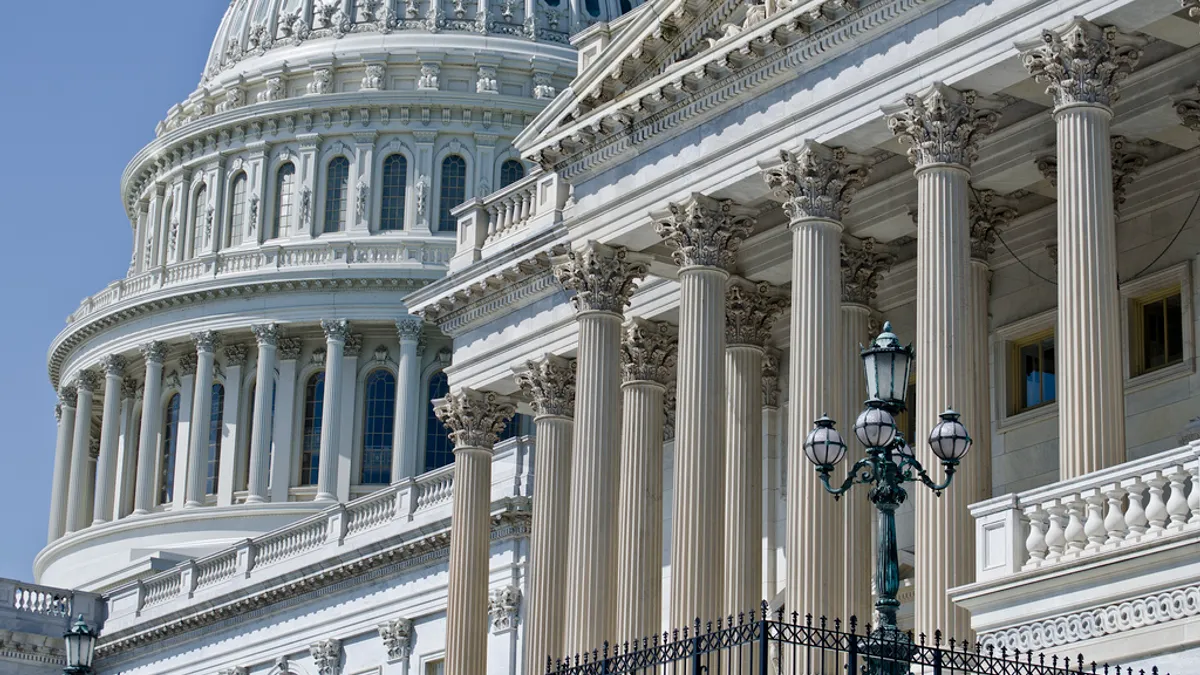Dive Brief:
- FDA's device and radiological health programs are set to receive approximately $556 million between congressional funding and user fees in fiscal year 2019, up from about $507 million last year, if President Donald Trump signs the appropriations package today that cleared the House and Senate Thursday.
- The nearly $269 million budget increase across FDA helps fund a number of medtech initiatives FDA pitched in 2018, including nearly $51 million intended for New Medical Data Enterprise, $25 million for the Growth and Transformation of Digital Health and $6 million for MedTech Manufacturing, according to an explanatory memo circulated with the legislation.
- Though the device-oriented funding falls short of the $636 million requested, the Alliance for a Stronger FDA, whose members include AdvaMed and other device groups, were pleased with the overall increase in agency funding.
Dive Insight:
President Trump is expected to approve the appropriations package later on Friday, which cleared the Senate by a vote of 83-16 and 300-128 in the House, avoiding another partial government shutdown, during which more than 40% of FDA staff was furloughed and the agency was unable to accept new premarket applications and user fees from manufacturers for 35 days in December and January. The shutdown created an estimated backlog of at least 300 device applications.
Under the Agriculture, Rural Development, Food and Drug Administration, and Related Agencies 2019 appropriations bill, FDA's total budget for 2019 is set to be roughly $5.585 billion, with approximately 45% of the agency's total spending set to come from industry user fees.
The newly-funded medtech initiatives were first laid out by Commissioner Scott Gottlieb last February. Under MedTech Manufacturing, FDA said it hoped to create a voluntary program for device manufacturers to receive certification for meeting quality criteria, which it said "would make the process for introducing innovations in how medical devices are manufactured more efficient and predictable." The program, which is being co-developed with the Medical Device Innovation Consortium, would also seek to encourage companies to invest in new production methods, processes and materials.
Through the digital health initiative, FDA said last year it wants to set up a Center of Excellence on Digital Health and establish a new marketing paradigm for lower-risk digital health technologies, as well as allow higher-risk products to follow a streamlined FDA premarket review in cases where a company receives outside quality design and testing certification.
"The agency would further reduce the time and cost of market entry of digital health technologies while assuring appropriate patient safeguards by relying on post-market collection of real-world data to support new and evolving product functions," the Gottlieb memo said.
The New Medical Data Enterprise line in the budget refers to the agency's goal to more extensively gather real world evidence and stand up the National Evaluation System for health Technology, known as NEST.











